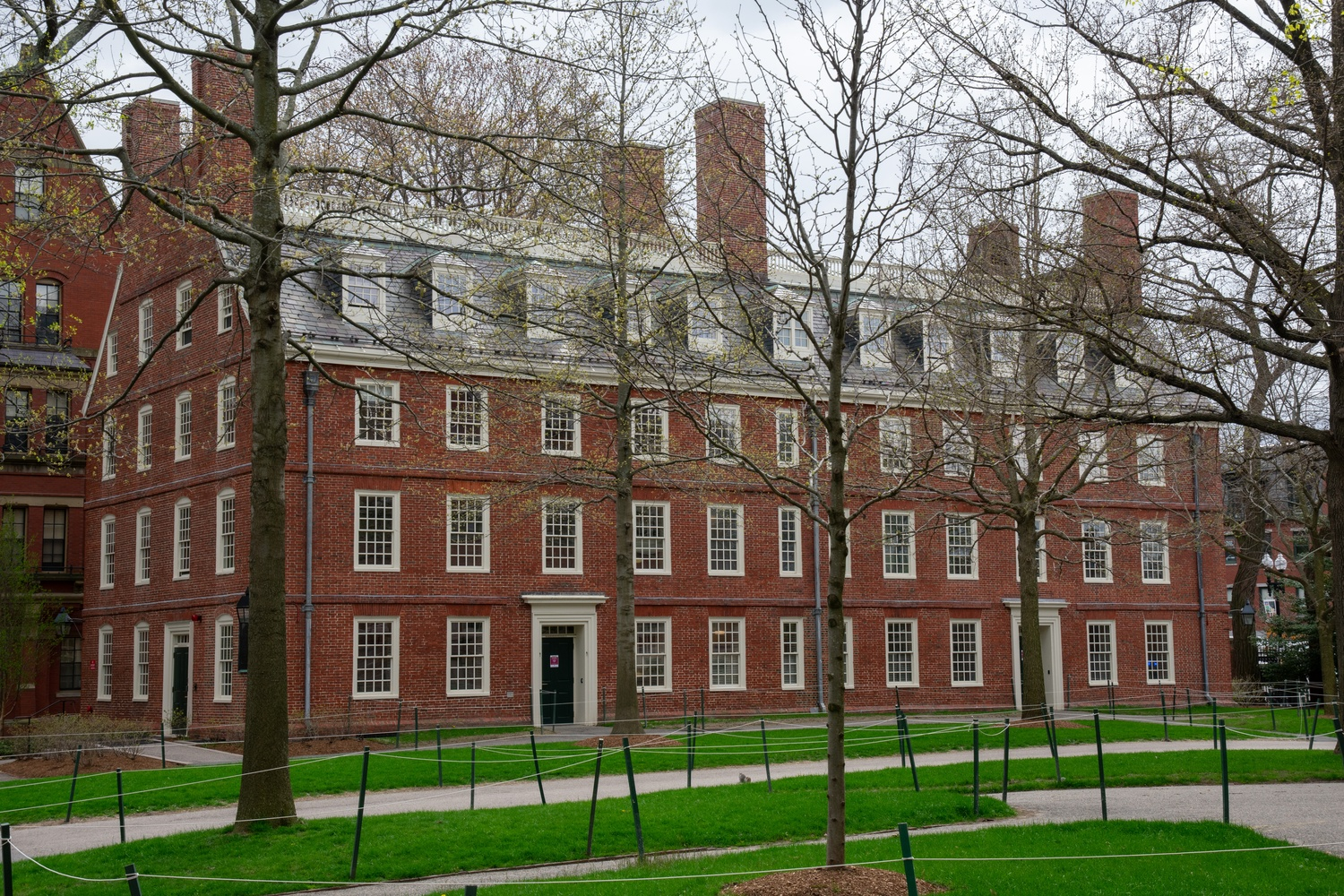The recent Harvard stop-work order has sent shockwaves through the academic research community, marking a significant moment in higher education history. With its demand for immediate compliance and the subsequent freezing of nearly $2.2 billion in research funding, this unprecedented move signals a concerning trend in scientific innovation at one of the world’s leading institutions. Among the affected projects are critical organ-on-a-chip technologies that hold promise for medical advancements, demonstrating just how intertwined academia and governmental policies are. Harvard’s decision to resist the administration demands has raised questions about the future of research in a climate described as an academic research crisis. As scientists scramble to maintain progress amid financial uncertainties, the implications threaten to ripple through the very fabric of America’s innovation ecosystem.
The Harvard stop-work directive has unleashed a wave of unease among researchers, prompting them to confront large-scale repercussions in the field of scientific inquiry. This controversial decision to freeze research activities brings to light problems related to governmental oversight and the potential stifling of academic progress. As scholars grapple with the cessation of projects, particularly those reliant on advanced organ-on-a-chip models, many fear the impact on pioneering studies in healthcare and space exploration. The administration’s insistence on imposing strict conditions has intensified fears of a broader academic research crisis, jeopardizing not just funding but the collaborative spirit that fuels scientific innovation. If left unaddressed, this conflict could hinder vital advancements and ultimately alter the landscape of American research funding.
The Impact of the Harvard Stop-Work Order on Research Funding
The recent stop-work order issued to Harvard has sent shockwaves through the academic community, particularly affecting vital research projects that hinge on Harvard research funding. On April 14, just hours after the university rejected the Trump administration’s demands, significant projects aimed at pioneering organ-on-a-chip technology faced immediate disruption. With over $19 million in funding on the line, researchers like Don Ingber from the Wyss Institute found themselves in a precarious position, scrambling to protect their work and safeguard their teams.
This abrupt halt to progress not only jeopardizes projects with immediate health implications but also raises questions about the future of scientific innovation at Harvard and beyond. Research funding is critical for supporting advancements that promote technological development, and the ongoing academic research crisis underscores the crucial role of government partnerships in driving forward research initiatives. The uncertainty surrounding the stop-work order reflects a broader issue that could diminish America’s innovative edge in global scientific arenas.
Organ-on-a-Chip Technology: A Game Changer for Medical Research
One of the most significant projects impacted by the stop-work order involves organ-on-a-chip technology, which models human organ responses on a microchip. This technology, developed at the Wyss Institute, represents a critical advancement in biomedical research, capable of simulating complex biological responses to various stressors, including radiation. As researchers race against time to understand how radiological impacts affect human health, especially in contexts like nuclear accidents, the cessation of funding puts these vital explorations on hold.
Organ-on-a-chip technology can revolutionize the way pharmaceutical companies develop treatments, by allowing for more accurate preclinical testing that mirrors human responses. In light of the current government stance, challenges remain in securing the financial backing necessary to continue this transformative work. Ingber’s research aims to provide insights that could improve patient outcomes for those subjected to radiation therapy or in situations involving nuclear incidents, highlighting the far-reaching implications of halted research on public health.
Federal Demands and Academic Independence: A Legal Battle
The conflict between Harvard and the Trump administration kicked off a significant legal battle following the issuance of the stop-work order. Harvard’s refusal to adhere to the administration’s demands, which included changes in governance and faculty hiring practices, sparked calls for a lawsuit that argues against perceived overreach and upholds the institution’s academic independence. This legal pursuit aims to restore crucial funding, not just for Harvard but as a statement on the sanctity of academic research funding in the U.S.
The implications of this battle extend beyond Harvard, encapsulating the tense relationship between governmental authority and academic freedom. As institutions of higher learning face increasing pressure from administrative demands, the ability to conduct unfettered research becomes compromised, potentially stifling scientific innovation and progress. The outcomes of this legal struggle will shape the future of academic research not only at Harvard but throughout the nation, determining how universities interact with federal funding.
The Future of Biomedical Research Amidst Uncertainty
As the fallout continues from the Harvard stop-work order, the future of biomedical research hangs in a delicate balance. Researchers like Ingber are grappling with the immediate need to halt ongoing experiments, which results in postponed advancements in crucial areas such as cancer treatment and the effects of radiation exposure. For scholars and postdoctoral fellows, this abrupt change poses threats to academic progression and career development, as mid-project halts can derail years of dedicated work.
Amidst these challenges, the potential shift in research focus emphasizes the need for resilience in the scientific community. Researchers are striving to pivot towards alternative funding sources, exploring collaborations that can safeguard their teams and projects against future governmental disruptions. The drive to maintain continuity in research amidst adversity highlights the intrinsic value of innovation-centric approaches, ensuring that vital medical advancements don’t slip through the cracks due to decision-making at the federal level.
Sustaining the Talent Pipeline in Science and Technology
The uncertainty surrounding the Harvard stop-work order has also begun to influence perceptions among prospective scientists considering the field in Boston. The anxiety created by the halt in funding has caused some researchers to reconsider opportunities at the Wyss Institute, as they weigh the risks of pursuing a career in the U.S. against more stable prospects in Europe. This represents a significant challenge for the American scientific sector, which has long relied on a diverse talent pool to drive innovation.
Retaining talent in the face of instability is crucial for maintaining America’s position in global scientific leadership. Leaders like Ingber are actively seeking solutions to support their teams, alleviate fears among researchers, and ensure that the collaborative spirit of innovation thrives even amidst adverse circumstances. Investing in talent development and fostering inclusive environments are essential to counter these disruptive trends and reassure the academic community that vital contributions to science will continue.
Scientific Innovation: The Core of America’s Economic Future
The ongoing crisis resulting from the Harvard stop-work order threatens not just academic institutions, but the very foundation of America’s innovation economy. Ingber’s reflection on the historical partnership between government and academia underscores how critical this relationship is for sustaining scientific innovation. Academic research has been a cornerstone for technology advancements, contributing to everything from everyday conveniences to life-saving medical breakthroughs.
As the situation unfolds, the importance of nurturing scientific innovation is clearer than ever. The funding freeze exemplifies how political currents can jeopardize progress in critical research areas such as organ-on-a-chip technology. Moving forward, there must be concerted efforts to re-establish strong governmental support that recognizes the pivotal role of universities in fostering scientific advancements that benefit society as a whole.
Protecting Research Integrity in an Uncertain Climate
In light of the unprecedented stop-work order, protecting research integrity has become a key priority for institutions facing federal mandates. Ingber and his team emphasize the importance of upholding the standards of academic research against political pressures that threaten to influence outcomes and access to resources. The integrity of research not only ensures that investigations can proceed without bias but also reassures the public of the value of scientific work.
Amidst challenges, researchers are encouraged to advocate for an academic culture that prioritizes transparency and ethical funding practices. This will require vigilance and resilience from university leadership as they navigate tumultuous political landscapes. Ultimately, prioritizing research integrity is essential for maintaining trust in scientific advancements and ensuring that innovations originating from institutions like Harvard continue to align with ethical and societal standards.
Adapting to Change: The Need for Flexible Research Models
The sudden stop-work order serves as a stark reminder of the need for flexibility in research funding models. Ingber points to the necessity of developing alternative strategies for maintaining research momentum in times of political and economic upheaval. Emphasizing traditional funding paths can create vulnerabilities; thus, institutions must explore new partnerships and funding avenues that foster sustainable research environments.
These adaptable models would not only mitigate risks associated with federal funding dependency but could also encourage innovative approaches to collaboration across disciplines. The rise of organizations committed to dual funding strategies, encompassing both public and private investments, may provide a more robust framework for sustaining scientific exploration in turbulent times. As research landscapes evolve, institutions must prioritize resilience and innovation within their operational frameworks.
The Role of Stakeholders in Shaping Research Policy
Stakeholders from diverse sectors must engage in shaping research policy to ensure that academic institutions have the support necessary to thrive. The fallout from the Harvard stop-work order highlights the importance of vocal advocacy for the critical role of research funding in society. Policymakers, university administrators, and the academic community must collaboratively work towards winning back essential funding and establishing policies that recognize the importance of research as a societal pillar.
Engaging stakeholders in dialogue can pave the way for policies that reflect a commitment to scientific advancement and its benefits for public health, technology, and economic growth. Ensuring that voices from all sides—students, researchers, public health experts—are incorporated into decision-making processes can lead to a more holistic understanding of the value of research funding. Ultimately, fostering an inclusive policy environment will bolster the resilience of scientific research in the U.S.
Frequently Asked Questions
What is a Harvard stop-work order and why was it issued?
A Harvard stop-work order is an administrative directive that halts research projects at the university, typically triggered by external pressures such as government funding freezes. In April 2025, the Trump administration issued a stop-work order following Harvard’s refusal to comply with specific demands regarding governance and hiring practices, greatly affecting over $2 billion in research funding.
How does a Harvard stop-work order impact ongoing research projects?
A Harvard stop-work order halts all activities related to the affected research projects, which can lead to significant delays and potential loss of progress, especially for graduate students and postdoctoral fellows engaged in critical experiments. Such disruptions impact projects utilizing innovative technologies, like organ-on-a-chip, aimed at addressing pressing scientific questions.
What were the implications of the stop-work order on organ-on-a-chip projects at Harvard?
The stop-work order specifically targeted organ-on-a-chip projects at the Wyss Institute, which focus on critical research areas like radiation damage assessment and effects of microgravity on human health. The cancellation of these projects poses risks not only to the scientific advancements promised but also to the training and career development of the researchers involved.
What steps is Harvard taking in response to the stop-work order?
In response to the stop-work order, Harvard initiated a lawsuit to challenge the legality of the government’s demands and sought restoration of its research funding. University officials are also exploring internal funding options to support affected researchers during this period of uncertainty.
How does the stop-work order relate to the broader academic research crisis?
The stop-work order emphasizes a larger academic research crisis stemming from government funding freezes and policy disputes that threaten innovation in science and technology. This situation reflects a potential decline in collaboration between government and academia, which is essential for driving advancements such as organ-on-a-chip technology.
What role does Harvard’s administration play in navigating the stop-work order?
Harvard’s administration is crucial in addressing the challenges posed by the stop-work order; they are engaged in legal action, budget management, and communication with faculty to ensure that talented researchers remain supported and can transition to other projects or funding opportunities while resolving the crisis.
What concerns do researchers have about the future following the stop-work order at Harvard?
Researchers, particularly those working on groundbreaking projects like organ-on-a-chip technology, express concerns over job security, loss of funding, and the broader implications of government actions on academic freedom and research innovation, leading many to reconsider their positions or future in the U.S.
How does the stop-work order affect recruitment of international scientists at Harvard?
The uncertainty surrounding the stop-work order at Harvard has caused hesitation among potential international recruits, who, fearing for their job security and safety, are less likely to accept positions at the university. This trend could negatively influence America’s ability to attract top global talent vital for scientific innovation.
What are the long-term effects of the stop-work order on American scientific innovation?
The long-term effects of the Harvard stop-work order could include reduced scientific innovation and collaboration, stifling the research necessary for breakthroughs in fields such as bioengineering and health sciences. The disruption of funding channels may lead to diminished competitiveness in global scientific research.
What is the significance of organ-on-a-chip technology in relation to the Harvard stop-work order?
Organ-on-a-chip technology is significant as it serves as a critical tool for modeling human disease and testing potential pharmaceuticals. The stop-work order hinders crucial research that has implications for public health and safety, especially in scenarios involving nuclear radiation and space travel, reflecting the broader impact on scientific advancement.
| Key Point | Details |
|---|---|
| Stop-Work Order Issued | Harvard received a stop-work order affecting multiple projects due to a freeze in research funding after rejecting the Trump administration’s demands. |
| Impact on Researchers | The order halted work on major projects, leaving researchers and staff uncertain about their future and funding. |
| Legal Action | Harvard filed a lawsuit against the government, claiming the order and demands were unconstitutional and sought to restore funding. |
| Importance of Research | The halted research has vital implications for public health and space exploration, especially concerning radiation effects on health. |
| Effects on Talent Attraction | The uncertainty is causing international scientists to reconsider accepting positions, impacting Harvard’s ability to attract talent. |
Summary
The Harvard stop-work order signifies a critical moment in the intersection of academia and governmental policies, as researchers scramble to navigate the implications of halted funding and project cancellations. With the university actively pursuing legal action to contest the order, the future of both essential research and the retention of talented minds at Harvard hangs in the balance. The ongoing situation exemplifies the importance of stable governmental support for academic innovation, which has historically driven technological advancements and national progress.




